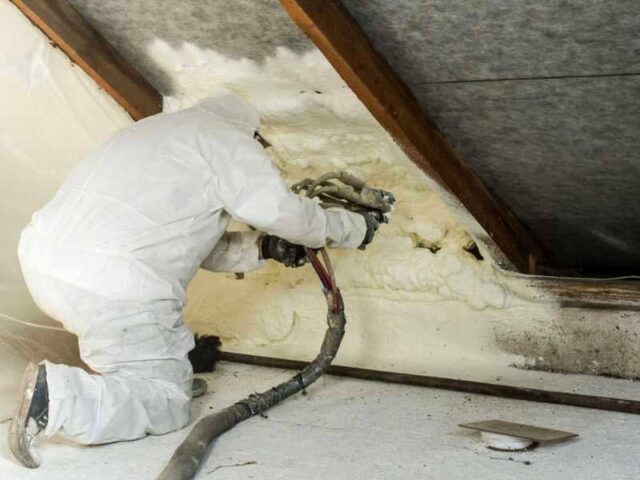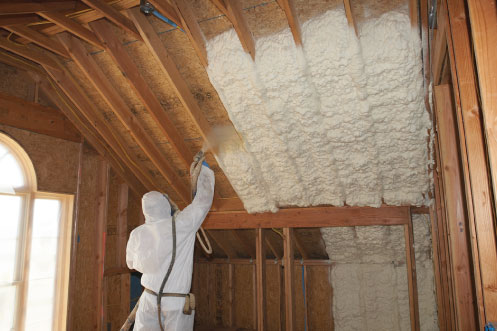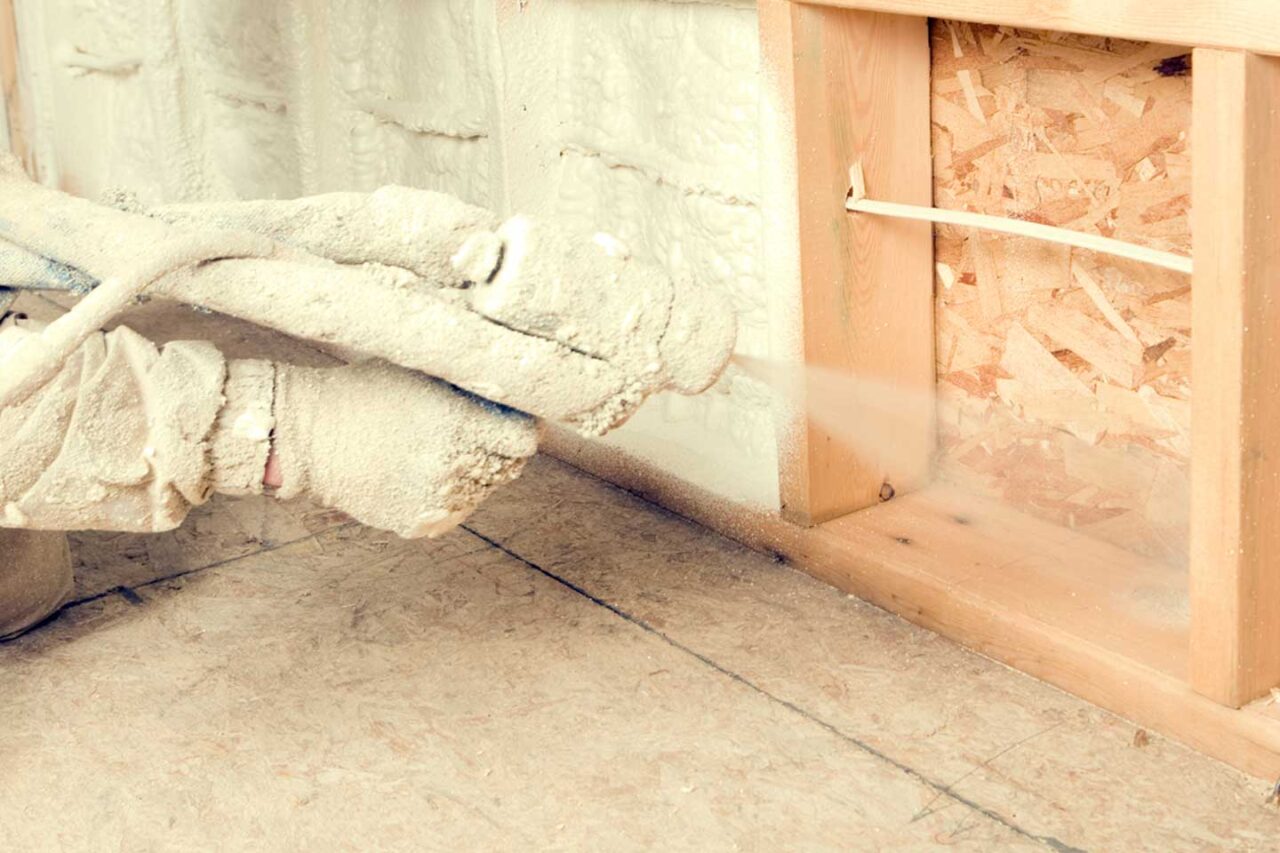Spray foam insulation is growing in popularity among Florida homeowners for its impressive ability to improve energy efficiency, create an air seal, enhance moisture control, and provide soundproofing.  With our hot and humid Florida weather, proper insulation plays a critical role in keeping our homes here in Tallahassee comfortable and our energy bills manageable.
With our hot and humid Florida weather, proper insulation plays a critical role in keeping our homes here in Tallahassee comfortable and our energy bills manageable.
But how much spray foam do you need? Let’s look at the things that help determine the right spray foam insulation thickness for your home and find out.
Factors Influencing the Thickness of Spray Foam
Climate Zone
With our warm temps and high humidity, our state falls primarily in Climate Zone 2, some maps might even say Zone 2A. Being in this zone means we experience significant cooling demands nearly year-round.
This makes spray foam insulation an ideal choice for giving your HVAC system a break and maintaining consistent indoor temperatures.
R-Value Requirements
An insulation’s R-value measures its resistance to heat flow (essentially, the higher the R-value, the greater the insulating power) and is key to determining your recommended spray foam thickness. The Florida Building Code (FBC) sets minimum R-value requirements for insulation in new homes to ensure their energy efficiency. Each part of your home has different insulation requirements.
Application Area
The thickness of spray foam varies by the location it’s applied:
- Attics
As one of the most important places to insulate, insulation here needs to combat significant heat gain. A thicker spray foam is often recommended.
- Walls
Wall insulation is fantastic at regulating heat transfer between your interior and exterior. The thickness depends on the size of the wall cavity and desired R-value. Closed cell spray foam works well in this space, while open cell may need overfilling for comparable results.
- Crawl Spaces
Florida crawl spaces often require proper moisture control. Closed cell spray foam is ideal thanks to its moisture-resistant properties and is often used in this area. Its thickness will depend on the height of your crawl space and any other insulation measures used.
Types of Spray Foam
Let’s break down your spray foam options because the choice between open cell spray foam insulation and closed cell spray foam influences the thickness you’ll need:

- Open Cell
It has a lower density and R-value (about 3.5 per inch) than closed cell but is lightweight and great for soundproofing and interior applications, like attics and walls. You will need more layers to achieve the same R-value as closed cell.
- Closed Cell
It is denser and more durable than open cell, provides excellent moisture resistance and has higher R-values (5.0-7.0 per inch). It’s ideal for exterior applications and smaller cavities. You’ll need less foam to reach your desired R-value.
Budget Considerations
While thicker foam provides better insulation, the cost also increases. It’s important to balance your budget with your home energy efficiency goals. Professional installation ensures the most efficiency without overspending. Remember, at a certain point, adding foam well beyond the recommended amounts is not cost effective.
Recommended Spray Foam Thickness Guidelines
Attics
- You’ll need an R-value of R-38 (if you already have 3-4 inches of insulation) up to R49 (if uninsulated).
- Open Cell: appr. 6-10 inches thick
- Closed Cell: appr. 3-5 inches thick
Walls
- Typical FL wall cavities are around 3.5 inches deep and need an approximate R-value of R-13.
- Closed Cell: 2-3 inches thick
- Open Cell: Overfill cavities slightly to achieve same R-value as closed cell.
Crawl Spaces
- Closed Cell: 3-5 inches is often recommended for crawl space walls to create an effective moisture barrier and insulation layer.
Roof Deck
- Consult a professional for insulation tailored to your roof type and needs. Be sure to consider factors like slope, existing roofing materials, and desired R-value.
Beyond R-Value: Air Sealing and Moisture Control
In addition to high thermal resistance, spray foam packs a two-in-one punch by also creating a continuous air seal. This prevents air leaks, significantly improves energy efficiency and reduces the risk of mold growth in our damp climate.
Why Professional Installation Matters
Spray foam’s effectiveness depends on the type used and its application. Hiring a qualified contractor ensures proper installation and foam insulation thickness, maximizing your home’s energy efficiency. Look for professionals with relevant certifications and experience with Florida’s weather conditions, such as Allweather Insulation. Be sure to ask for multiple quotes and discuss thickness recommendations with potential contractors.
Create an Energy Efficient Home with Spray Foam
 Properly installed spray foam insulation provides you and other fellow Tallahassee homeowners with energy savings, better moisture control, and improved comfort. By considering our climate, R-value needs, application areas, and your budget, you can determine the right insulation for your home.
Properly installed spray foam insulation provides you and other fellow Tallahassee homeowners with energy savings, better moisture control, and improved comfort. By considering our climate, R-value needs, application areas, and your budget, you can determine the right insulation for your home.
At Allweather Insulation, our expert team is here to answer all your spray foam questions and walk you through the installation process. Contact us today to receive your free consultation and learn how the right thickness of spray foam can transform your Tallahassee home.


